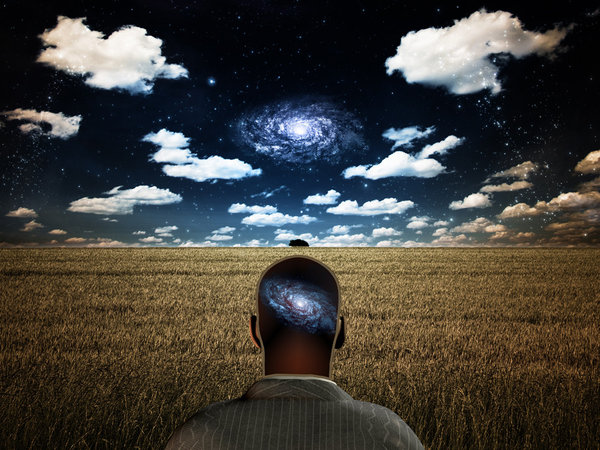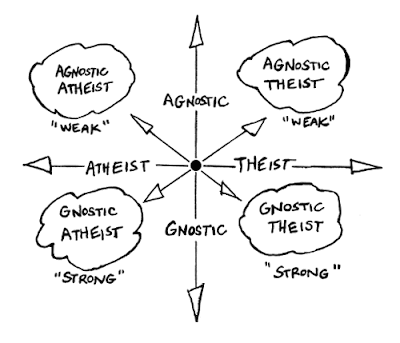The Problem With Kalam
The Problem With Kalam
Kalam, or more formally the Kalam cosmological argument as presented by the Christian theologian William Lane Craig states:
1. The Cosmological Argument from Contingency
The cosmological argument comes in a variety of forms. Here’s a simple version of the famous version from contingency:
1. Everything that exists has an explanation of its existence, either in the necessity of its own nature or in an external cause.
2. If the universe has an explanation of its existence, that explanation is God.
3. The universe exists.
4. Therefore, the universe has an explanation of its existence (from 1, 3).
5. Therefore, the explanation of the universe’s existence is God (from 2, 4).
Now this is a logically airtight argument. That is to say, if the premises are true, then the conclusion is unavoidable. It doesn’t matter if we don’t like the conclusion. It doesn’t matter if we have other objections to God’s existence. So long as we grant the three premises, we have to accept the conclusion. So the question is this: Which is more plausible—that those premises are true or that they are false?
Herein lies the problem. The Kalam cosmological argument does not presuppose monotheism. In other words, there isn’t anything to suggest that it wasn’t a pantheon of minds/deities/gods which created the universe instead of just one. Why is this a problem? Consider the following logical argument:
1. The inference that there was only one creating agent is true
2. The inference that there was more than one creating agent is true
3. Both can’t be simultaneously true
4. Therefore, if 1 is true then 2 is false and if 2 is true then 1 is false
5. Unable to defer to either 1 or 2 the possibility of neither/none
Therefore there is no direct corollary between the inference of any creating agent(s) and the causality of the universe. What does this mean? It means, that like a team of computer programmers toiling away to design a complex computer program, the universe could very well have been designed and brought into existence by an assembly of advanced thinking beings/deities. Furthermore there is no way to deduce whether it was one or a thousand gods who assumedly did the toiling. But since it can’t be both, and both are equally plausible and therefore equally unlikely, neither option can be justified by inference alone, thus none becomes the more likely option—leaving us right back where we started—at ground zero. Therefore the Kalam cosmological argument fails.
Possible Objections and Counter Objections
Actually, I don't think people discuss the personal/necessary being aspect of Craig's argument enough. Personally, I find this is where the chinks in the armor are. Many causes is a huge obstacle for Craig, which is why he keeps ducking the challenge of tackling it head on. Craig's response to this objection on his website Reasonable Faith is utterly lame. According to Craig:
The kalam argument is clearly not consistent with there being a group of deities cavorting with one another prior to the world’s creation, since the argument takes us back to a changeless state which is, I think, timeless. To imagine a group of timeless, unembodied minds somehow acting wholly in concert to create the world brings one awfully close to the doctrine of the Trinity. A Trinitarian (or Unitarian) concept of God seems much more plausible than polytheism’s many gods all independently existing timelessly and acting in concert to create the universe.
Craig might want to occasionally pause and think about what he is saying. As it is, he contradicts himself in the same sentence. First he says a group of deities (with multiple minds) is inconsistent with the Kalam cosmological argument and then reneges the statement immediately afterward to claim a triune deity (with multiple minds) works just fine. What is a trinity if not a group of three? Even if it is one Transcendent personal being, there are at least three distinct personalities/minds. Craig contradicts himself. Three is not one.
Craig still needs to provide a method which allows him to differentiate between one and the many, otherwise he's up the creek without a paddle. Maybe because he believes the Trinity to be one whole entity it's not three separate minds so much as a schizophrenic schism of personality types? How does he figure? He doesn't, he just expects you to agree with him--more special pleading. Likewise what is to differentiate between a necessary deity, existing in a changeless state, and two or more causal agents doing the same? Time is only an added dimension, and is relative, so has nothing to do with how many causes (or causal agents) there can ultimately be (in Transcendent form).
Also, why can't a pantheon also act as a hive mind? The Borg in Star Trek the Next Generation can do it. I think Craig reveals the limits of his own imagination when he fails to consider such an obvious analogy. Now just make the Borg Transcendent beings, and presto! Craig thinks, for some odd reason, that a pantheon of gods working is concert is harder to grasp than one schizophrenic God. I don't see how a pantheon of, say, three polytheistic gods is harder to grasp than, oh well, a Triune being which is three in one. If you ask me, the concept of three in one is rather convoluted.
Craig simply dismisses the objection as if he's never really thought it through, which is why I have a hard time taking him seriously. He wants people to agree with him, but until he explains how Kalam predicts one necessary causal agent, which so happens to be a complex personal creator being with a schizophrenic personality, I think the objection of many causes is more than valid--it's completely devastating to Craig's entire argument.
Some other objections which might be raised include:
1. Applying Occam’s razor we find that one god, or a God, is the simplest “explanation” and so has a better chance of being the correct inference.
a. Although Occam’s razor is a useful rule of thumb in weeding out unnecessary information, there is nothing the the Kalam cosmological argument which suggests a strict law of parsimony need be observed. Therefore my initial point that multiple gods are just as likely as an inference as one god stand as the primary objection to the validity of the Kalam cosmological argument. Additionally, what’s to suggest a conscious mind of a thinking god is less complex than a quantum event? Indeed, the rule of parsimony cannot be relied upon here.
2. Other cosmological evidence, such as fine-tuning and the argument of something rather than nothing, suggest an intentional set of laws which in turn denote a conscious act behind the intentionality of the predetermined parameters.
a. Again, there is nothing which presupposes monotheism, even as fine-tuning remains, in my opinion, the best chance of establishing a practical cosmological argument, it doesn’t go far enough to address the initial problem of many gods vs. one god, and so leaves us right back where we started.
3. The argument from reason seems to hint at the fact that our own consciousness is a necessary consequence of the detectable intentionality of a greater consciousness.
a. Even if we grant this, we cannot forget to overlook the fact that neuroscience offers a good preliminary model for human consciousness. Moreover, if granted, there is still no reason to assume a single consciousness over multiple or plural consciousnesses. What is to suggest that I don’t derive my consciousness from god X while you derive yours from god Y? Still the problem of aggregation remains.
I would predict any other objections will meet the same trouble, therefore my initial point that Kalam doesn’t presuppose monotheism remains valid. As such it still follows that there is no direct corollary between the inference of any creating agent(s) and the causality of the universe.
Identifying Weak Propositions
Whenever people argue over the deductive powers of the Kalam cosmological argument, or any other cosmological argument for that matter, I get confounded. By my reckoning there is no valid reason to even consider the argument or its deductions to begin with. The Kalam cosmological argument as offered by Craig and every other cosmological argument each fail in the same fashion.
Even if we assume the Kalam cosmological argument is true, at best it could only be an inference for a deistic creating agent, but not any specific type of god (personal or otherwise). If the theologian presupposes their version of God then they have simply taken out a qualification they needed to prove their case and are begging the question. Knowing this to be the case, any suggestion that the Kalam cosmological argument is a legitimate inference for God (because the universe exists, therefore must have been caused, thus proves that God is necessary to establish such causality) is simply special pleading.
In truth, however, hinging one’s entire proof for God on two faulty premises is by any epistemic standard a failed argument. Yet what theologian would be willing to admit that they are mistaken? Since such an admission would defeat their purpose of proving the existence of God and offering the argument in the first place they adamantly search for novel ways to keep believing in the validity of an illegitimate argument. Theologians like Craig love to flog a dead horse, hoping that your curiosity will be peaked by the bizarre and strange event long enough to compel you to come over to inquire what he’s on about. This gives the theologian the chance they need to urge you into buying their snake’s oil and have you listen to what they have to say and why they feel it is a valid argument—one that you couldn’t possibly refuse. They’ll likely throw in some ‘eternal salvation’ for free if you hurry up and buy now.
Conclusion
All considered, we find that the Kalam cosmological argument fails to establish any genuine inference that the universe was caused by a creator being whatsoever, and for that reason it is invalid. Simply put, the Kalam cosmological argument fails before it ever begins, and if you ask me that’s a telltale sign of a non-argument. If theologians were more honest with themselves they would reject the Kalam cosmological argument altogether, and without hesitation, on the basis that it is by all accounts something which simply cannot be true by inference alone. Of course, then they would not be able to say that the existence of the universe points to the existence of a divine ‘creator’ being. Well, too bad. I suggest we deal with it and move on.



Comments
Post a Comment